When your pet gets sick while traveling, it’s even more scary than when it happens at home. Pre-planning can make things easier. Hope you never need these plans. But if the worst happens, you’ll be glad you’re ready.
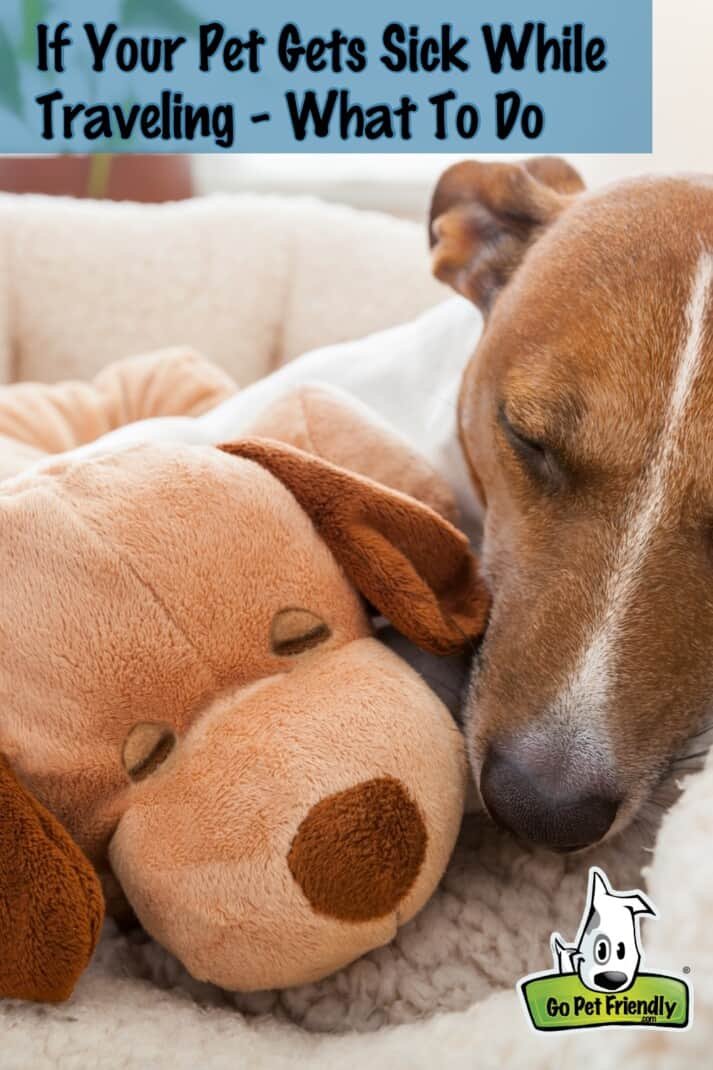
ill happened
Pets get sick. We hate to think about it – but it’s part of our responsibility as pet parents. Illnesses or accidents that require a visit to the vet are bad enough at home, but things get a little more complicated when you travel.
While traveling full-time, we have made many visits to the vet with dogs. And we have learned that a little forward planning can save a lot of stress. We hope these tips give you food for thought. And that you never have to use them!
READ MORE ⇒ How to tell if your dog has a fever
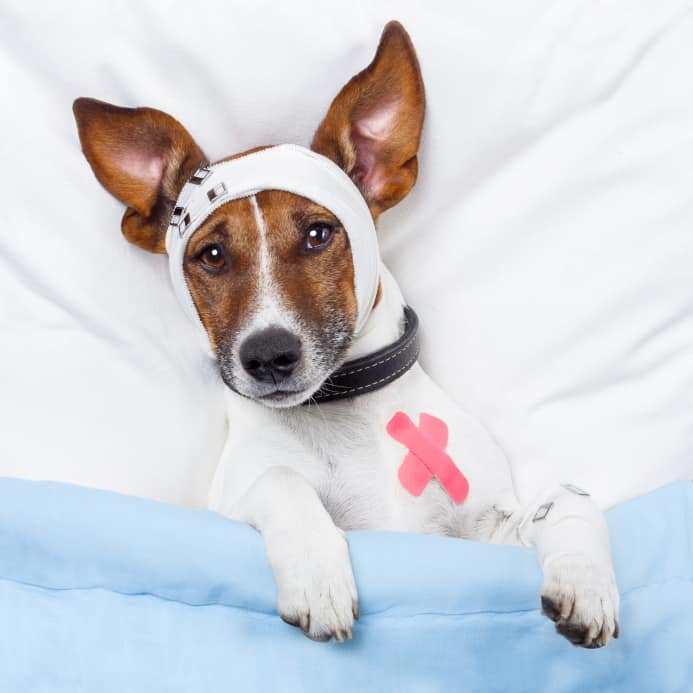
Tips if your pet gets sick while traveling – preparation
1. Pack a good first aid kit. Whether you buy one or assemble it yourself, you’ll have everything you need to deal with minor cuts, splinters and stomach upsets. Check out our list recommended first aid material in our Amazon shop. Or our post on making a DIY pet first aid kit. Then take some time to familiarize yourself with the contents of the kit. You can even take an online course on basic first aid procedures before you need to use them.
Talk to your veterinarian about proper dosages of any common medications (like antihistamines or aspirin) your pet may need to take. There are also some handy books and videos to walk you through the steps to help your pet in the most common emergencies.
READ MORE ⇒ How to make a pet first aid kit for your car
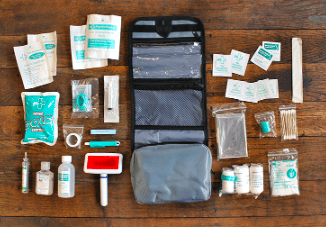
2. Pack your pet’s medical records. In an emergency, it will be a challenge to remember your name, let alone the details of your dog or cat’s medical history. Before you go, scan their medical records and save them to a USB drive. It’s easy to pack and the emergency vet will have all the information they need at their fingertips.
Some veterinary offices offer digital online records with a login. If your vet does this, make sure you set it up before you go!
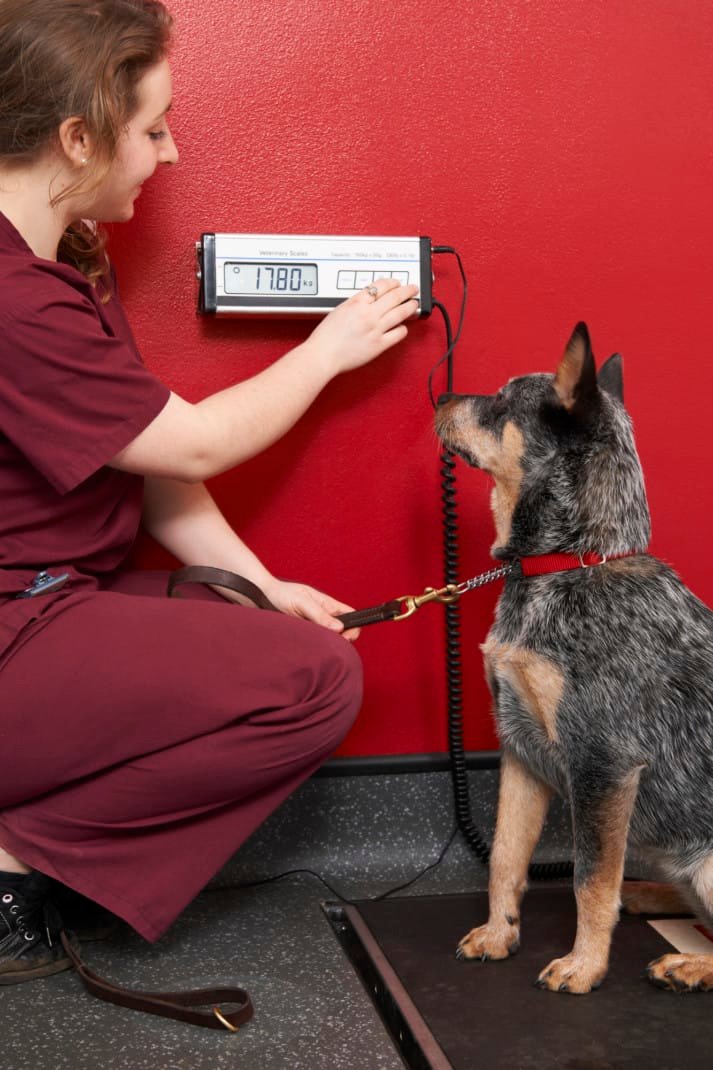
3. Don’t forget your veterinarian’s contact details and fax number. The emergency vet may have questions for your vet. Or they want to send follow-up reports and instructions. Don’t waste time looking for contact information. With the contact information, the vet and tech can spend more time on care and less time on paperwork.
4. Have a muzzle that your dog is comfortable in. Many emergency hospitals will not allow you to accompany your pet into the examination area. And some dogs, when in pain, in an unfamiliar environment, and surrounded by strangers, might react to “defend” themselves. A muzzle protects everyone. And for your dog, wearing a muzzle that he is familiar with will help reduce stress.
Make sure you practice putting the muzzle on your dog before you need it. Teach your dog that a muzzle is a magical treat dispenser. You’ll want to wear it in no time.
READ MORE ⇒ What you should know about emergency vets before you need one
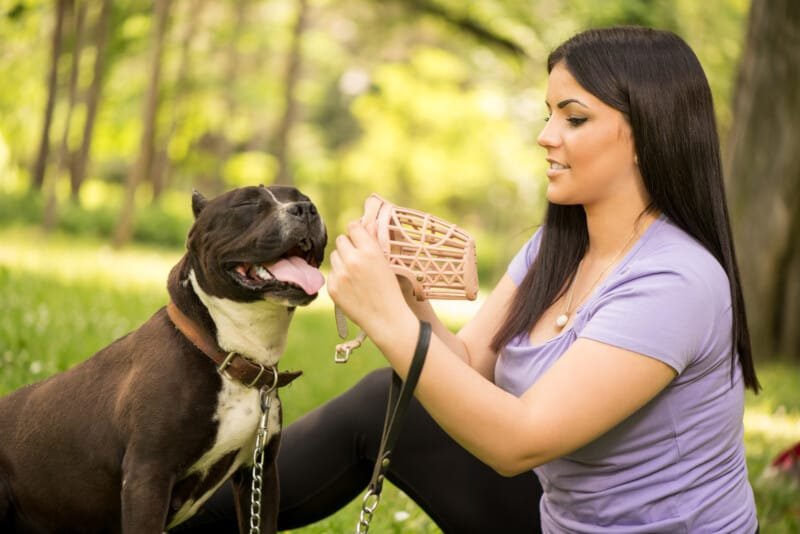
5. Know where the emergency vet clinic is located. You probably know exactly where to take your pet in an emergency when you are at home. But if you’re traveling, you’ll need to research the area’s veterinary clinics and note their location and hours of operation.
You can use the GoPetFriendly search feature to search for veterinarians in your area. You can find them under “Services” and under “Amenities” you will find those that are open 24 hours a day. Searching now will save you time when every minute counts.
Tips for when your pet gets sick while traveling – right now
6. Rely on friends or your social network for veterinary recommendations. Years ago, Ty developed a severe fever and was dehydrated while we were visiting a big city. Finding a vet wasn’t a problem – in fact there were so many we didn’t know which one to choose!
A personal recommendation always helps, so we posted our dilemma on our Facebook site, and within minutes received a suggestion for a local vet. The doctor was able to squeeze us in on a Saturday morning and the care we received was fantastic.
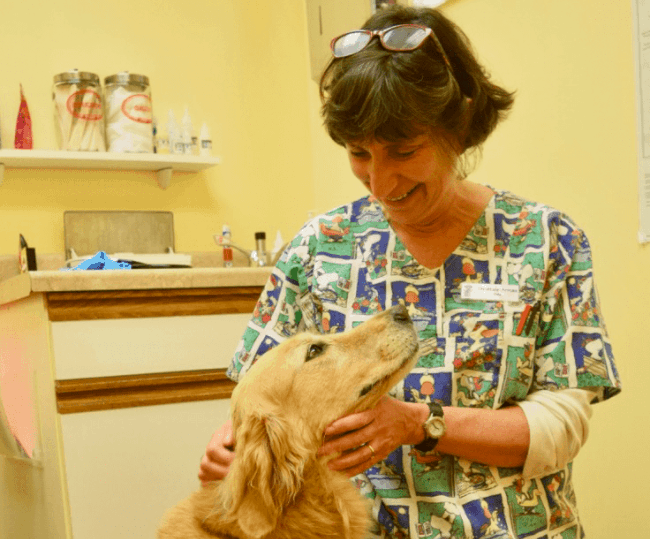
7. Determine visitation policy. Although veterinary clinics are unlikely to place you in the trauma area, some will allow you to visit your pet once it is stabilized.
Once, when Ty needed to be monitored overnight, the hospital staff allowed me to sit with him in front of the kennel when they weren’t treating another emergency. It made us both feel better!

When the emergency is over
The emotions and stress of an emergency often make it difficult to think clearly, but a little preparation will ensure you can give your pets the best possible care. And we hope it’s like grabbing an umbrella on a day with chance of showers – if you do, it certainly won’t rain!

When the worst happens and you felt well prepared, treat yourself. You deserve it!
(Visited 1,090 times, 1 visit today)

